I am at La Grande Motte Multihull show for catamarans and trimarans in southern France at this moment. For sure, the tariffs imposed by the Trump administration against many countries are a topic people are talking about here. With an industry currently suffering from the past surge of prices due to high inflation and electricity/labour costs, recent nes of a 20 percent tariff on products imported to the United States from the European Union is a … well, what is it reall? A blow? A suicide? A toothless tiger?
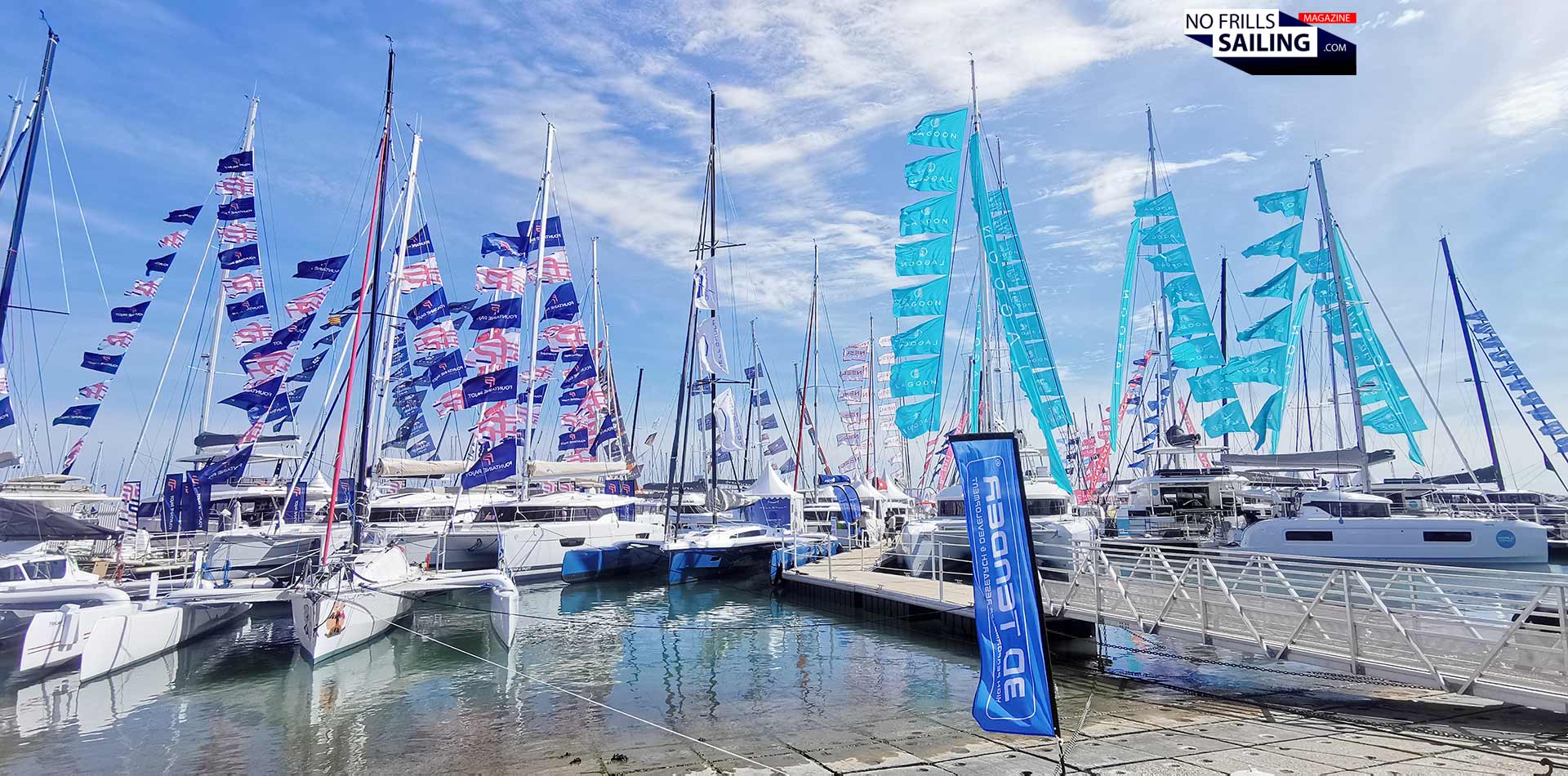
As Google Analytics tells me that around one third of you, dear readers, are Americans, I thought that this might be an interesting topic for you as well. So I´ve contacted more than ten bigger and smaller European boat manufacturers and brands, asking five questions about their current situation, the immediate impact of the Trump tariffs and their opinion with an outlook on how things might develop. Just three of them answered, which, in turn, is an answer in itself, I´d say.
How important is the American market for the European boatbuilders?
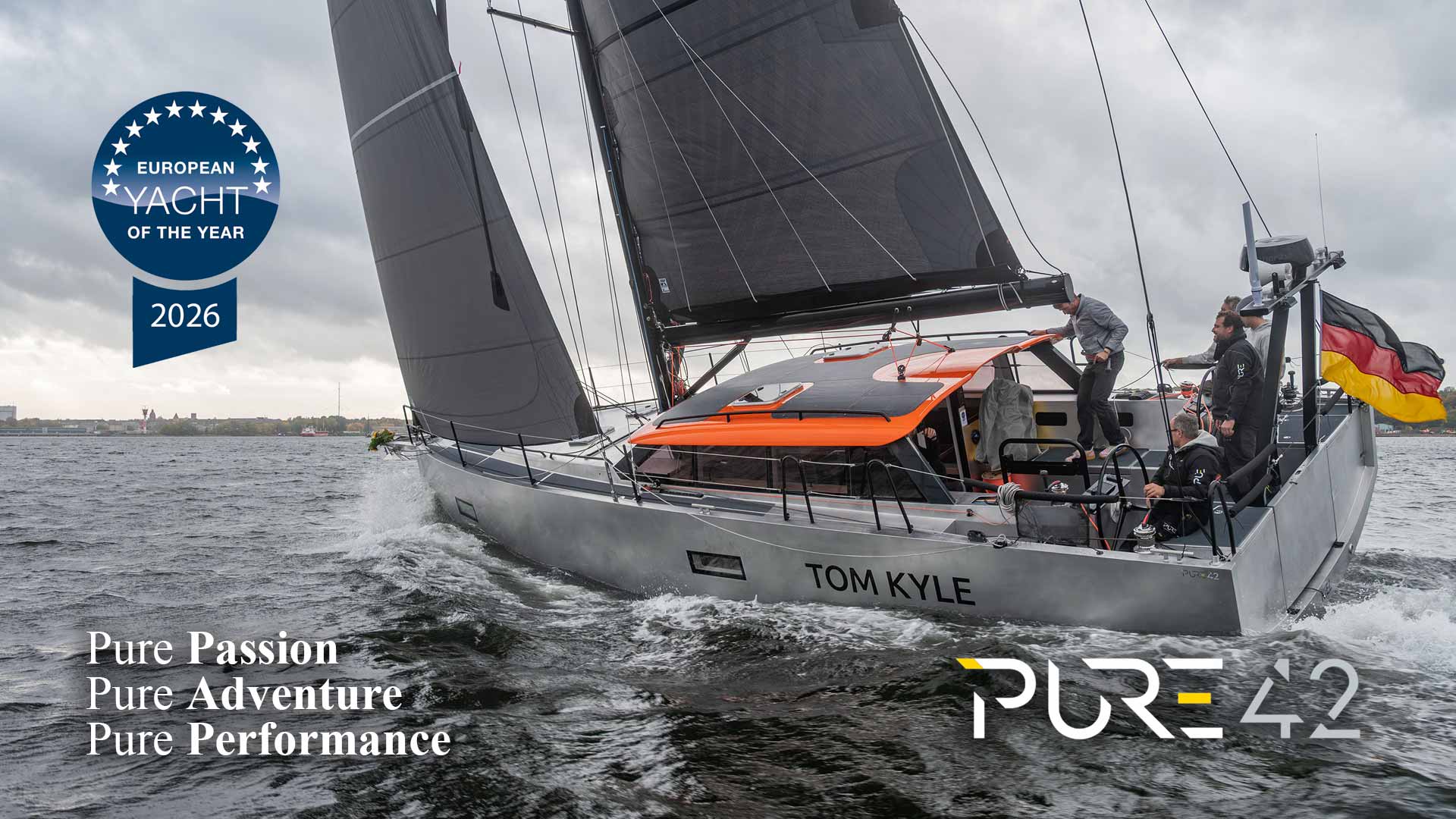
Magnus Rassy, whom I really appreciate as a person and business man, sent his answer right away at the same day. He stated that currently as of now 19 boats are in various states of production in Ellös/Sweden and he also attached a picture. Full order books, I´d say. His renown brand sells up to 30 percent of yachts to the American market, which shows the importance of the United States for Hallberg-Rassy. So, what is the feedback from his US-dealerships or brokers, I ask him. Are those tariffs seriously affecting sales of his brand?
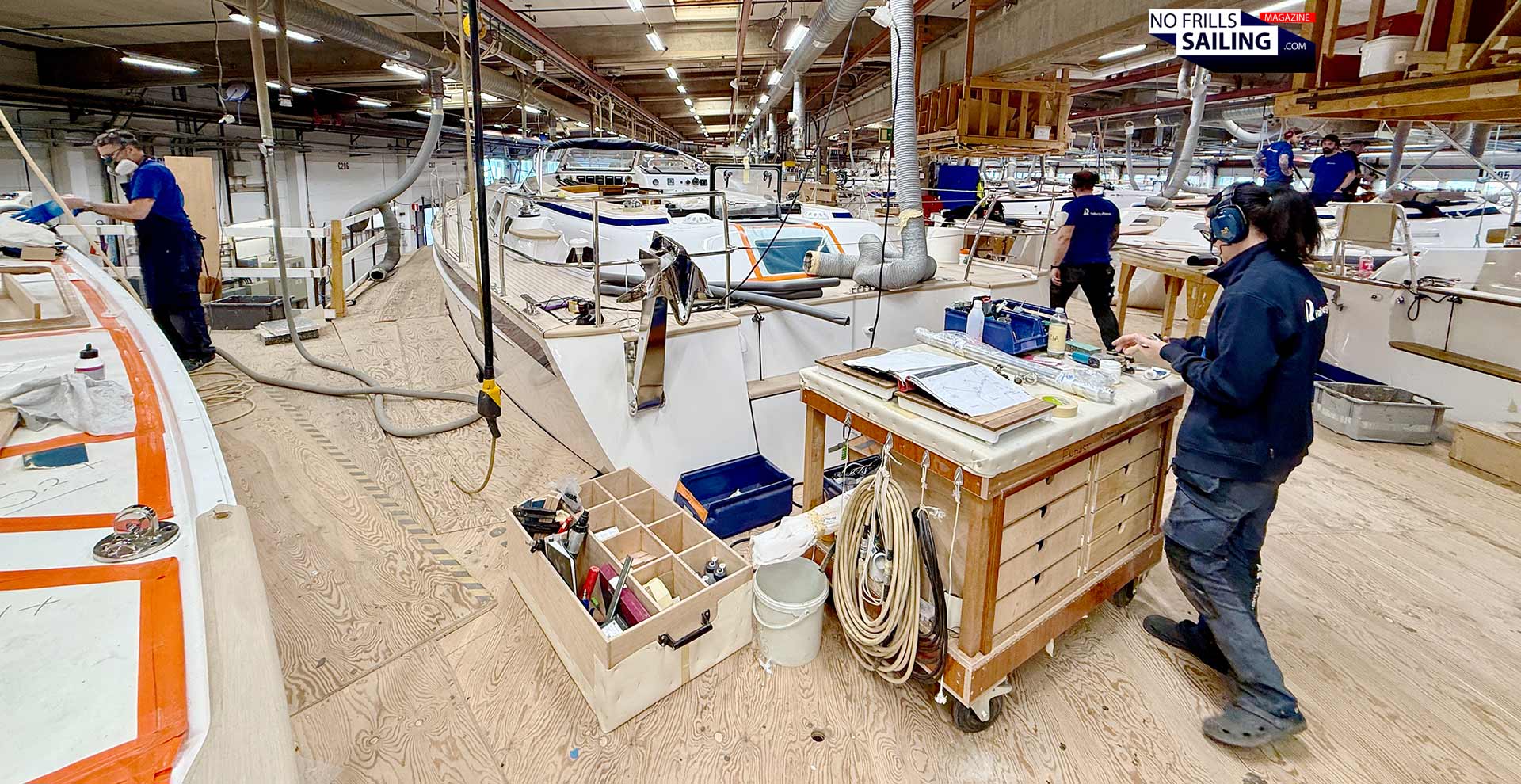
He says: „It is not the tariffs in itself, there are ways to avoid them. It is the general market situation, the recent exchange rate changes, the unpredictable stock market, uncertainty about costs development and so on that is giving many potential customers a “wait-and-see-mentality”. That will certainly affect sales in any business in the near future.“ This is something I have seen myself for the past 2 or 3 years in Europe, Germany especially as well. Having the money to buy a boat seems not the problem: The uncertainty what the future will bring is hampering buying decisions to a large extend. Stephen Parkinson, Sales Director at Oyster Yachts was the second who answered my inquiry. Overall sales from Oyster into the North and South American markets represent 25 to 30 percent of their whole business, he states.
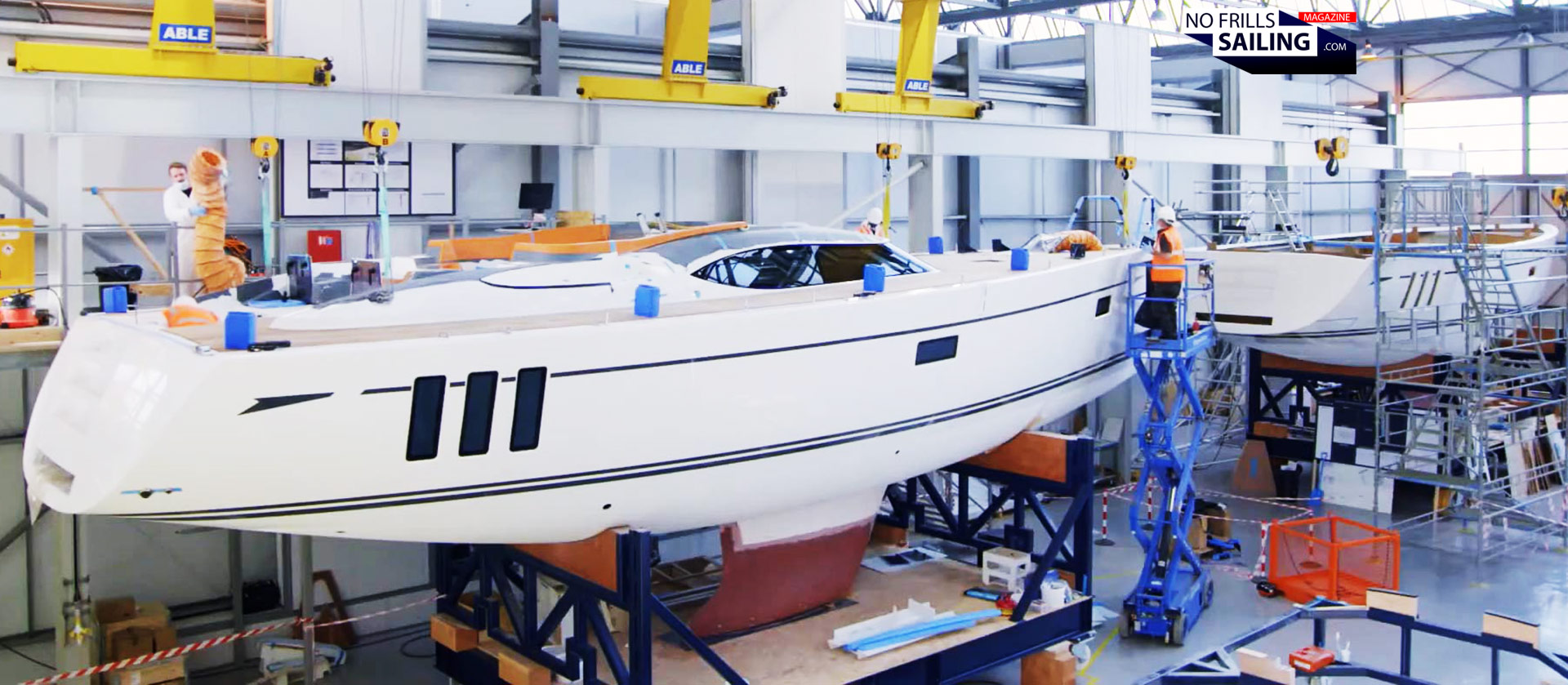
Oyster Yachts is selling directly to the United States via their office in Newport, RI. US Sales Director Dan Dan Wurzbacher says it’s too early to tell: „Oyster overall, including the Americas, had an excellent year in sales last year. We hope and expect to continue the momentum despite the uncertainty around tariffs.“, he states. Thirs one to send a reaction was Bavaria Yachts spokesperson Marcus Schlichting. Instead of answering my distinct questions, he relayed the official statement of the shipyard. As Bavaria´s sales to the USA aren´t that high compared to their overall business, this rather relaxing approach is understandable.
Unpredictable policies, asking the Crystal Ball
One thing, I would say, is for sure: The policies of the new administration in the US are somewhat unpredictable. Announcements, decrees, actions and the announcements of rolling back, changing or cancelling the previous actions are daily news. But, how to react when you have to run a business? Even more in times which are hard, despite the „Trump-factor“? Magnus Rassy tells me: „The past year has not been easy on the market, yet Hallberg-Rassy has managed to sell enough boats to operate on a full capacity use of our shipyard. And we still have a fairly good order book allowing us to continue on 100 per cent capacity for a while. But …“
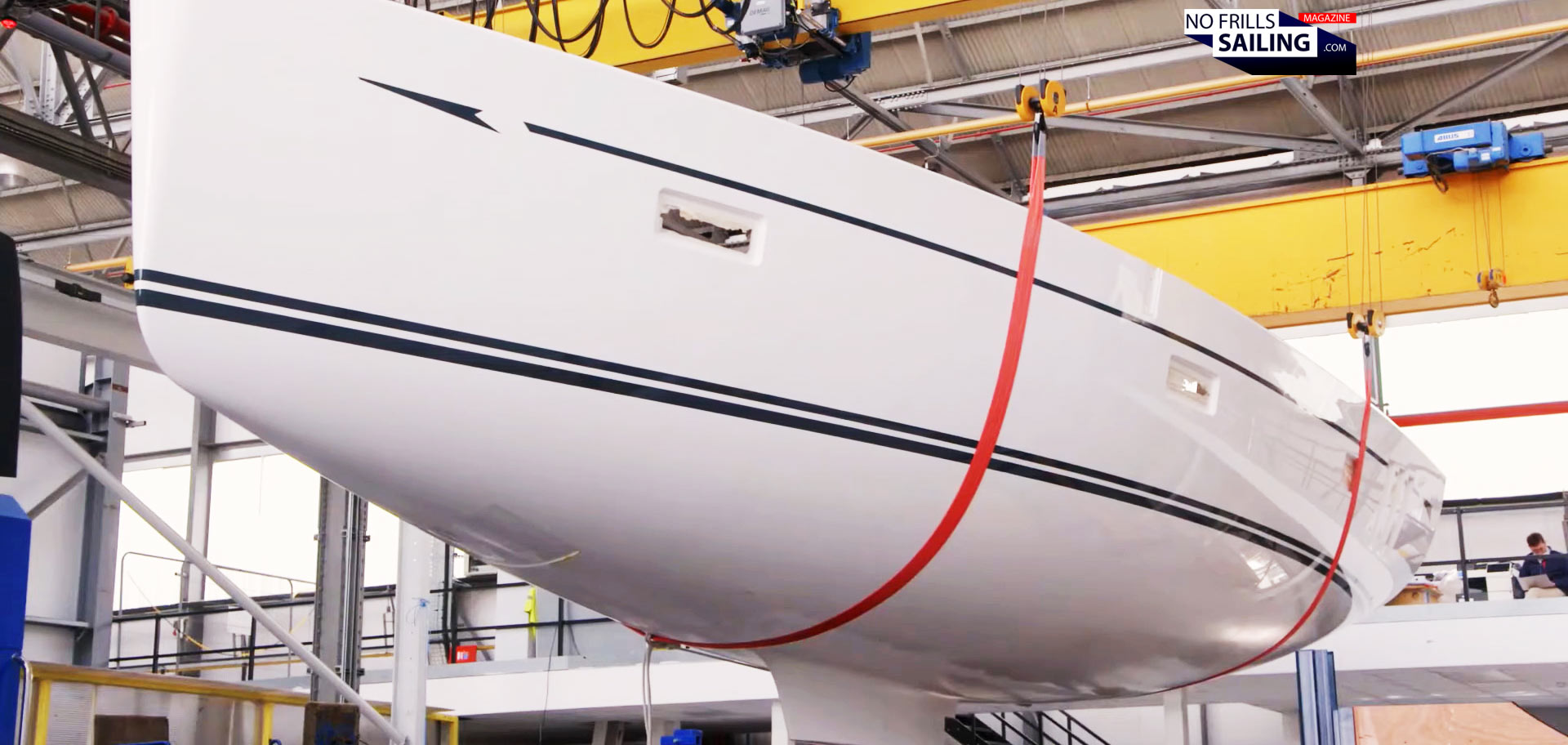
There is always a but, right? Magnus: „In Sweden a company must pre-warn if it may need to make lay offs in the future. This is why we decided to make such a pre-warning, going from 100 per cent capacity down to 24 per cent in possible lay-offs.“ This is not one third, as some media recently wrongly stated. But nevertheless, a shocking news from Sweden last week. Magnus says: „Well, if we do not pre-warn, we will not be able to legally adjust capacity if we will need. Of course, let’s hope that all uncertainty will be gone and that market, currency and stock market returns to confidence in the future! What our buyers want is more certainty and a more predictable future.“ There it is again: Uncertainty!
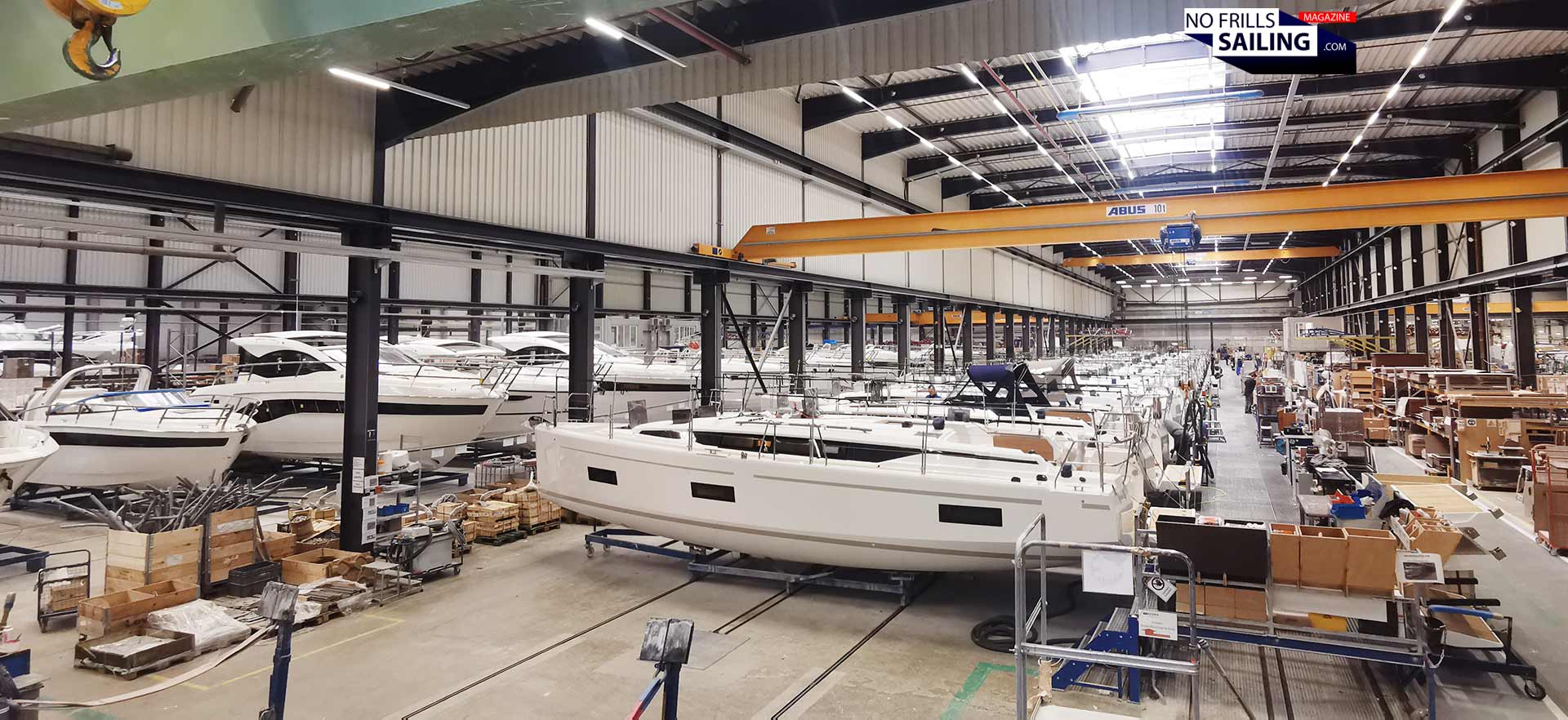
The press release by Bavaria Yachts which I have been sent, emphasizes exactly this: „As the share of sales to the US by Bavaria Yachts is comparatively low and currently negotiations between the US and the European Union are ongoing, we cannot say for sure what will happen. Also, the definitive amount of tariffs on EU-made boats exported to the US isn´t clearly set as well as of now. Most destructive in this matter, from our perspective, is the uncertainty created amongst boatbuilders and potential customers, especially our Amrican prospects. Capital expenditures in private property, such as yachts, are being held back due to this uncertainty, which is harming the business most.“ I´d have nothing to add here …
Will there be a long-term problem for the European boating industry?
I personally would say: No. Why? Well, other than maybe for power boats, there are no decent, large enough or even established sailboat-makers in the US. Even with the last remainders of sailboat makers, such as Marlow-Hunter, there is no production capacity, skilled labour or investment power to create an „American sailboat industry“. Illusionary to create an American Hallberg-Rassy or supplant the power or the large series production companies with „homemade“ boats. Let alone the urge of a client to own a Scandinavian yacht, a boat made in Italy or a luxury British yacht.
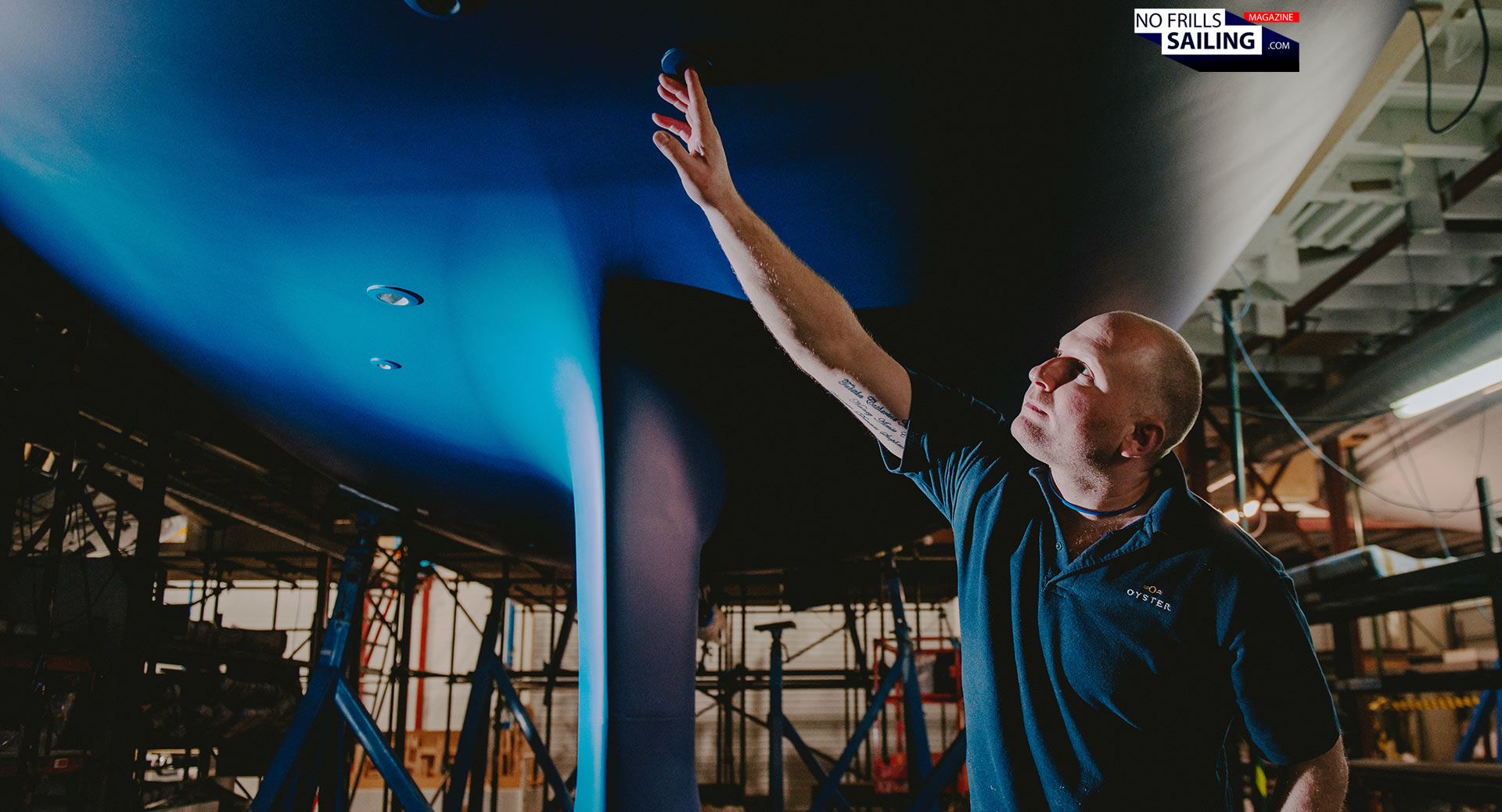
Magnus Rassy tells me: “What the future will bring is impossible to tell. I would not call it a problem, it is all about adopting to reality. No matter what, to use a sailing term, we need to be able to set the sails for the weather and make the best possible out of that. Hallberg-Rassy has a good base: We have always been taking things in the right order, first make the money, then investing with own funds in our own business. We do not have any loans in the company and we have a small overhead.“ I´d say that´s the way to go! On the other hand, I could also imagine that especially for American sailors, now´s the time to go for a new boat! Why?
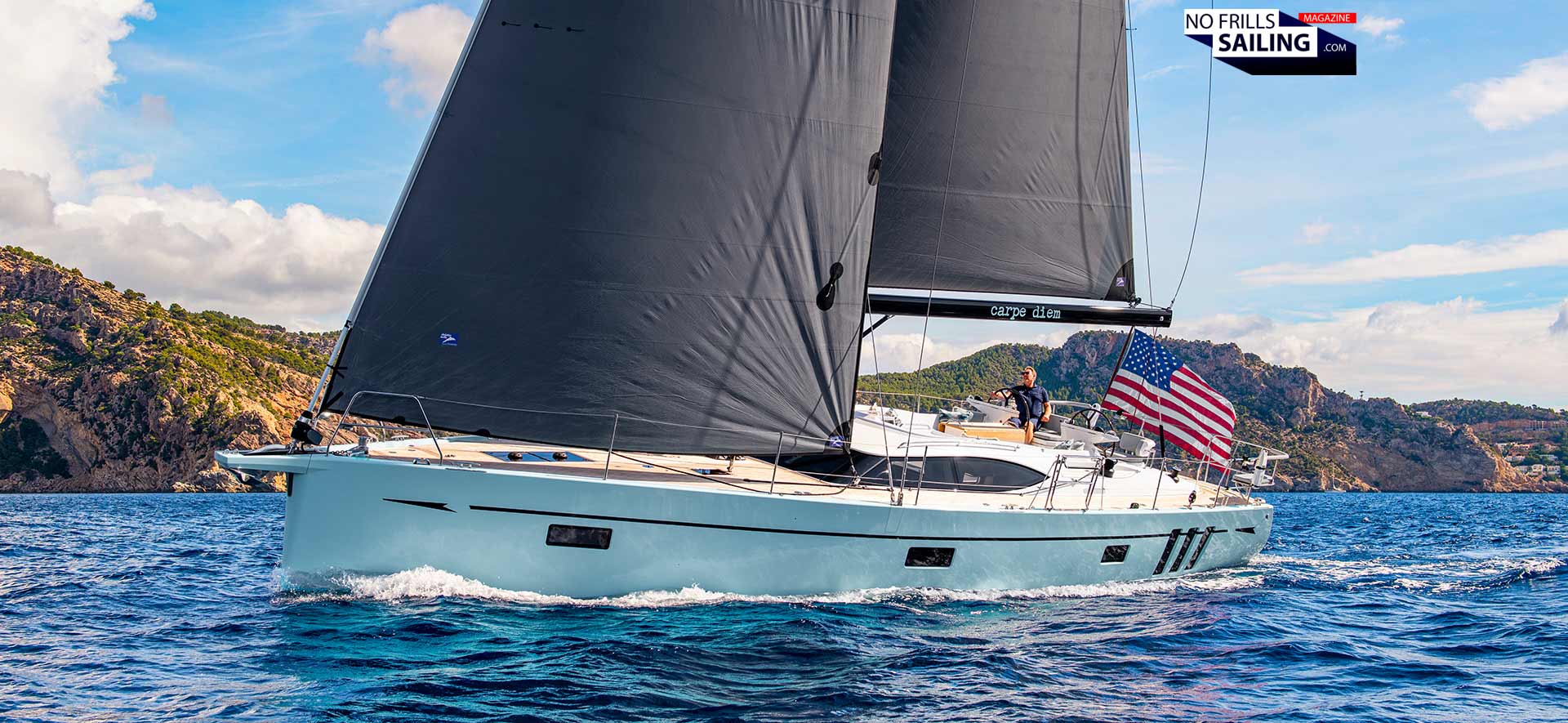
Well, if your American boat dealer still has stock boats already important, these may be the last yachts available without any surplus charge in form of tariffs. I could imagine that there´s currently a little surge in demand, opportunity to make good business for both boat dealers and customers. Bfore tariffs come into effect, get your boat and save 20 per cent! As Oyster Sales Director Stephen Parkinson tells me: „We are monitoring the situation and watching closely for any developments. It’s a fluid situation that is rapidly changing. Oyster is always prepared to adapt to a changing market environment. If the tariffs will be a problem, only time will tell. I think we will have a better idea in six months what the long-range impact, if any, may be.“
So, what to do now?
The given 20 percent increase of prices to be paid by American buyers is a huge thing. One fifth extra will make boats, which have seen a surge in pricing over the past two, three years, even more unattainable. On the other hand, importing a yacht to the US from Europa has always been an adventurous thing: There´s the Atlantic Ocean in between, as you may know. Paying for boat-transport on large cargo-ships or doing the crossing with pro-skippers has always been adding budgets for American clients. Another perspective could be the way of simply flagging out: Common practice for superyachts and very large luxury vessels for decades. Will we see more mid-sized Maltese boats in the future?
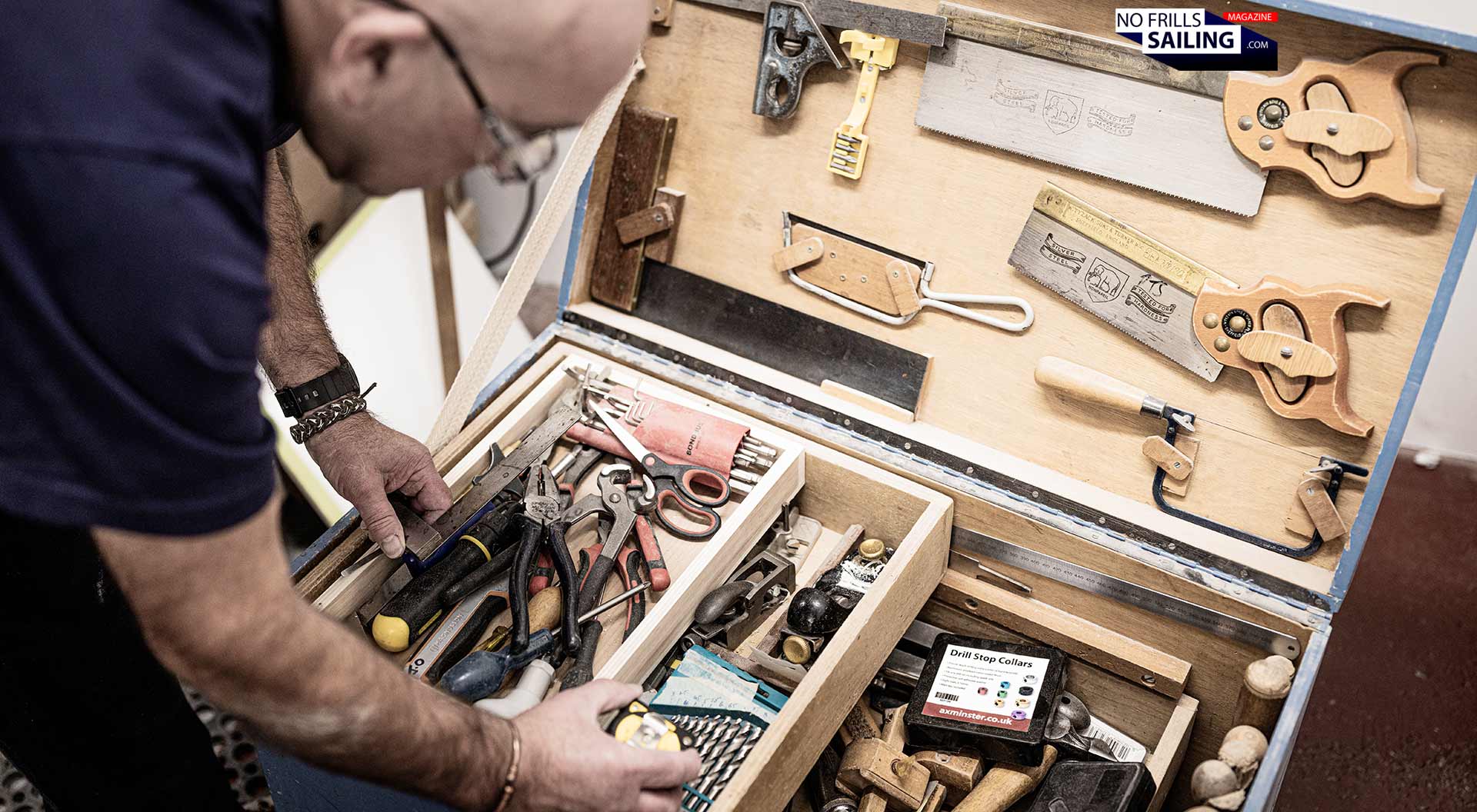
Certainly, and this is my opinion, selling a yacht and buying a boat hasn´t become easier these days. As I am in close contact with many of my old prospects and clients, their feedback is unison. Trump´s tariff announcements and actions certainly do not help anyone. The uncertainty among the offering party and the demanding party is hampering sales. On the other hand, buying a boat made outside the EU in US Dollars does indeed become more attractive on the other hand. Right now I am working on the booth of HH Catamarans in La Grande Motte. An American company based in Xiamen. When buying one of these absolutely high-grade carbon-cats, all transactions are processed in US currency: Which is now devaluing due to Trump´s policies. This indeed makes it much more attractive to European buyers.
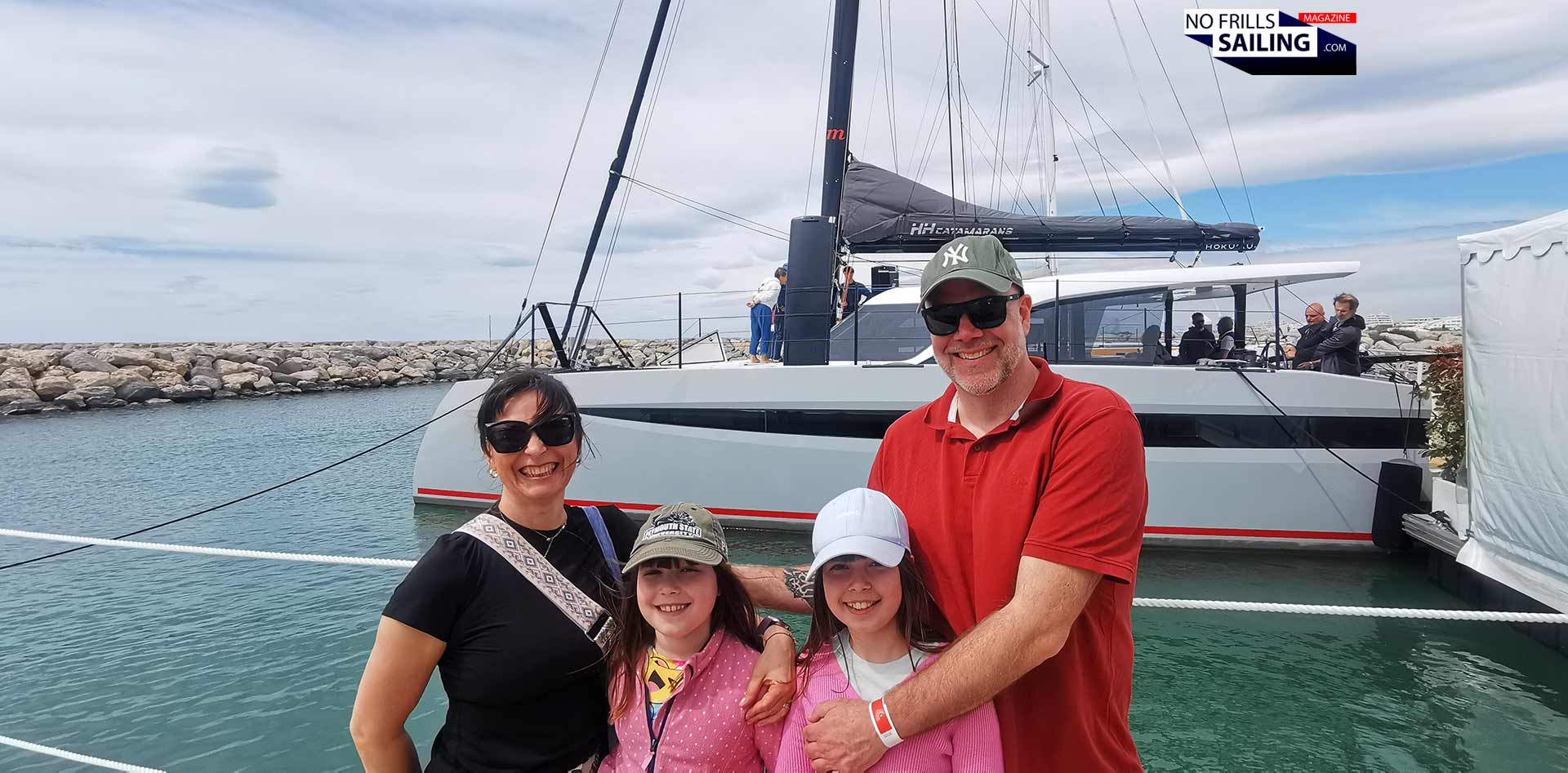
There´s always a light where there is shadow, they say. On the other hand, I´ve also noticed – hidden, slowly and very gently – a kind of „fuck it!“-mentality. Not a few people are really fed up with the rollercoaster our lives have been since the past years: Covid, lockdown, crackdown on civil rights and liberties, the wars, the news, the yelling and hollering.
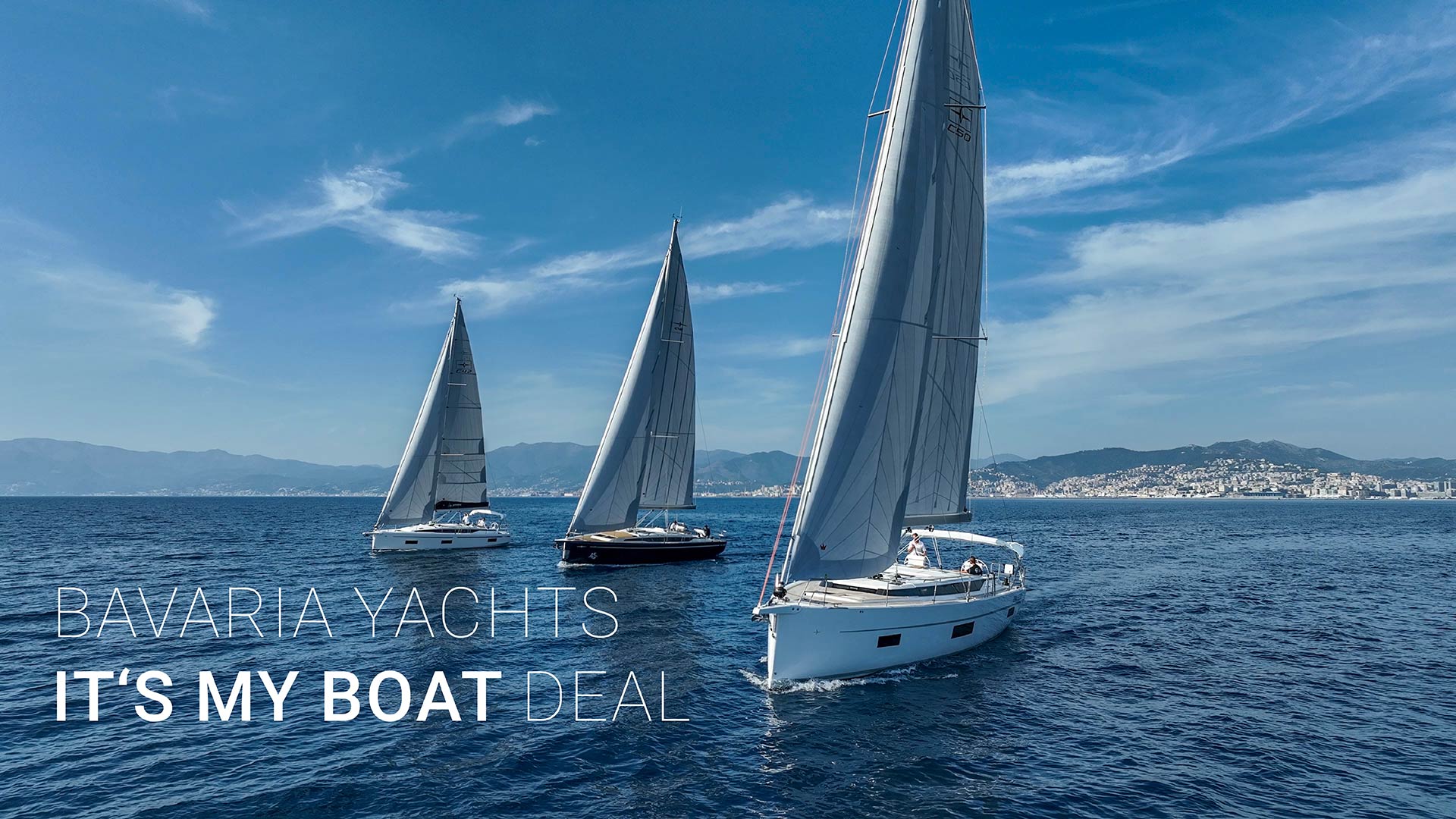
Fuck it! Let´s get a boat!
They say: „Fuck it! Let´s get a boat, no matter what – and just cast off! Turn our back on this clusterfuck situation and try to create our own little bubble of happiness!“ And what, my friend, is better suited to do exactly that, than a boat? Why not, I guess – we can´t change the big picture anyway. Just, don´t panic: Keep your heads up, my American friends, as any storm, this will pass as well.
Thanks to Magnus Rassy, Stephen Parkinson of Oyster and Marcus Schlichting of Bavaria for contributing!
Also interesting to read:
At Bavaria shipyard in Southern Germany
Not an Epotaph: The Oyster 745 blue water cruising yacht


